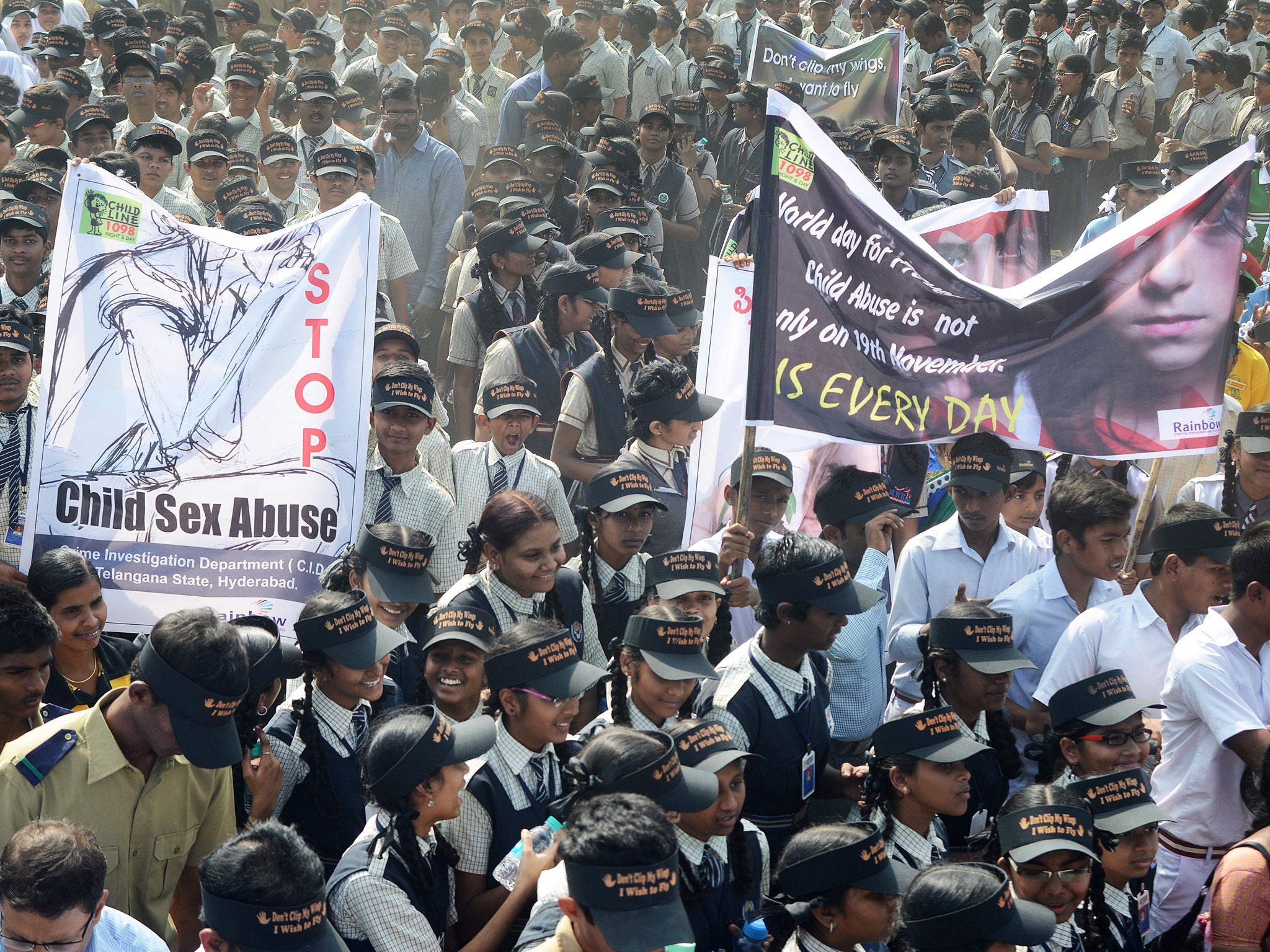Child sex trafficking victims being raped, burned and starved in India's brothels, report concludes
Young girls in Kolkata being forced into prostitution by 'extremely violent and cruel methods', investigation by International Justice Mission concludes

Your support helps us to tell the story
From reproductive rights to climate change to Big Tech, The Independent is on the ground when the story is developing. Whether it's investigating the financials of Elon Musk's pro-Trump PAC or producing our latest documentary, 'The A Word', which shines a light on the American women fighting for reproductive rights, we know how important it is to parse out the facts from the messaging.
At such a critical moment in US history, we need reporters on the ground. Your donation allows us to keep sending journalists to speak to both sides of the story.
The Independent is trusted by Americans across the entire political spectrum. And unlike many other quality news outlets, we choose not to lock Americans out of our reporting and analysis with paywalls. We believe quality journalism should be available to everyone, paid for by those who can afford it.
Your support makes all the difference.The brutal “breaking in” of trafficked girls in Indian brothels, from rape to beatings to starvation, leaves girls unable to say “no to anyone” or escape, a new study has found.
The testimonies of child sex trafficking survivors in the eastern Indian city of Kolkata offer a glimpse into the violence young girls endure before they are pushed into the sex trade.
“Traffickers are using the tactic of a ‘conditioning period’ to break the resilience of children,” said Saji Philip of the charity International Justice Mission, which co-authored the study with the government of West Bengal state.
“Fifty-five percent of the survivors were beaten with objects and some were forced to witness murder of other minors. These are extremely violent and cruel methods.”
The report into the prevalence of commercial sexual exploitation of children in Kolkata found more than half of the survivors had undergone a breaking in period involving being raped by the first customer, threats and physical violence.
West Bengal, with Kolkata as its capital, accounted for 44 percent of human trafficking cases reported in 2016 and also had the most missing children reports, according to government data.
Based on interviews with survivors, researchers said some had been beaten over a period of two weeks and burned with cigarettes, some were kept in isolation, while one was locked in a room without food for 12 days.
In addition to conditioning periods, managers used debt bondage to force survivors to enter the sex trade, said the report, published last week.
Managers told about half of the survivors that they had been sold and could not leave until they had repaid the money.
Others were told they owed the hosts who fed, clothed and housed them during sometimes months-long periods before they were forced into the sex trade, having been lured on the promise that they would be placed in well-paid jobs.
Once they had been “broken in”, survivors reported providing services to seven to 18 clients a day.
“They (managers) said not to go against the customer’s word - to let them have pleasure and not to express our pain,” said one teenager from West Bengal interviewed for the report.
“If they’re pleased, they would pay more.”
Thomson Reuters Foundation
Join our commenting forum
Join thought-provoking conversations, follow other Independent readers and see their replies
Comments